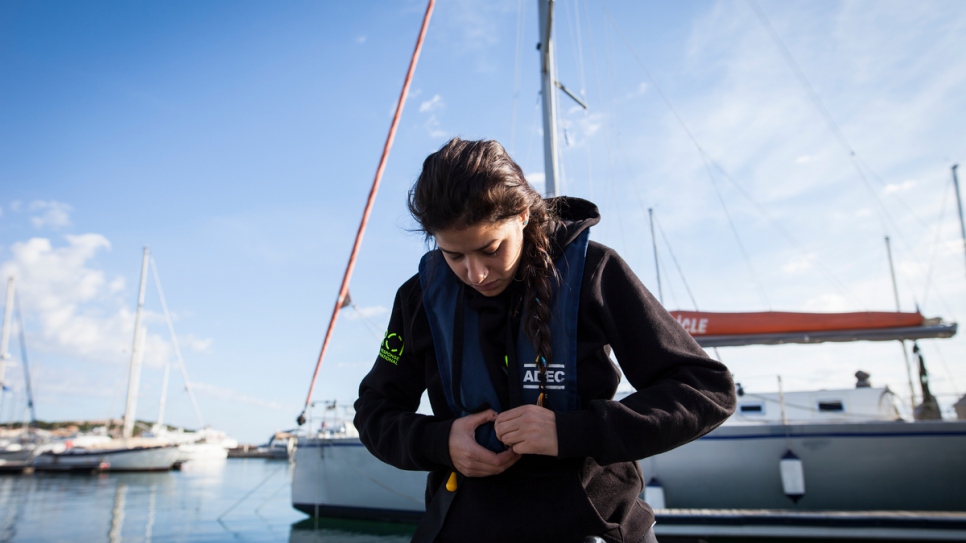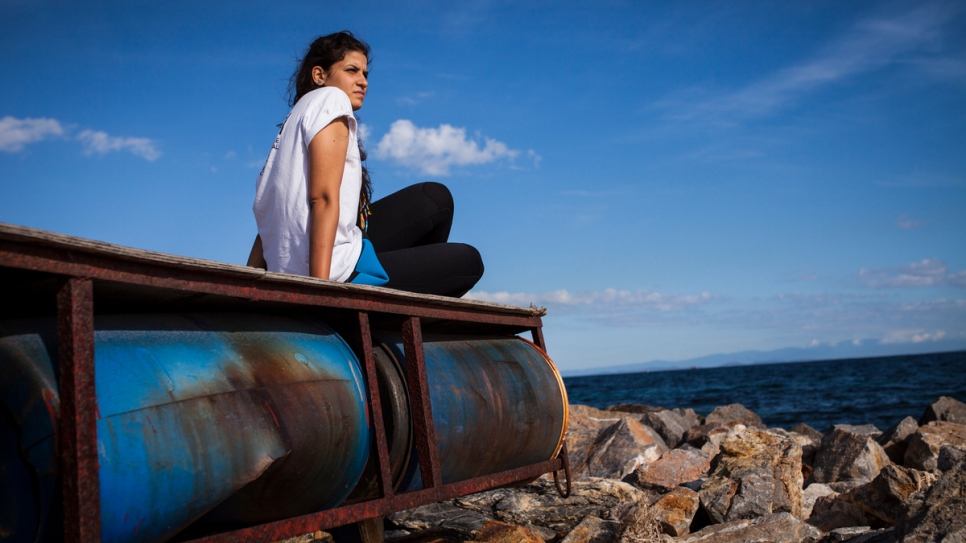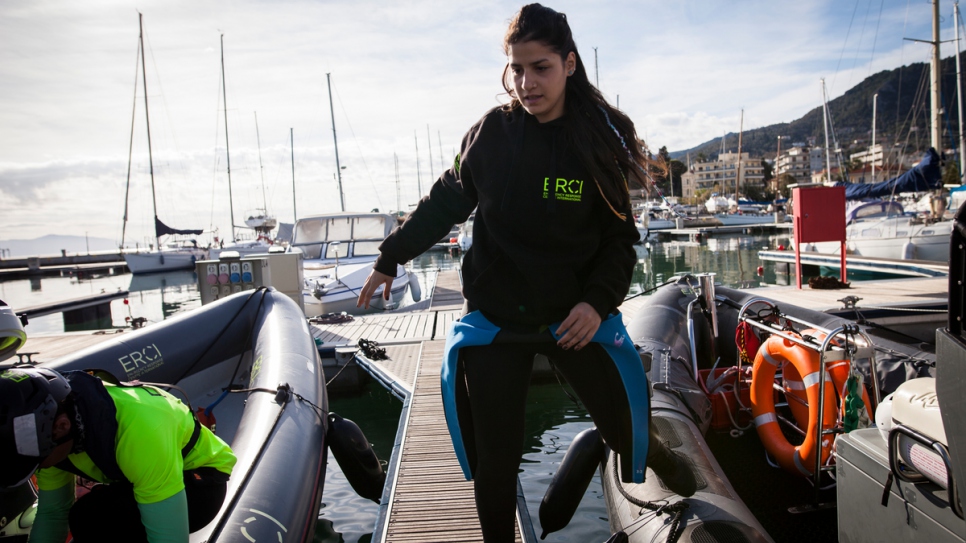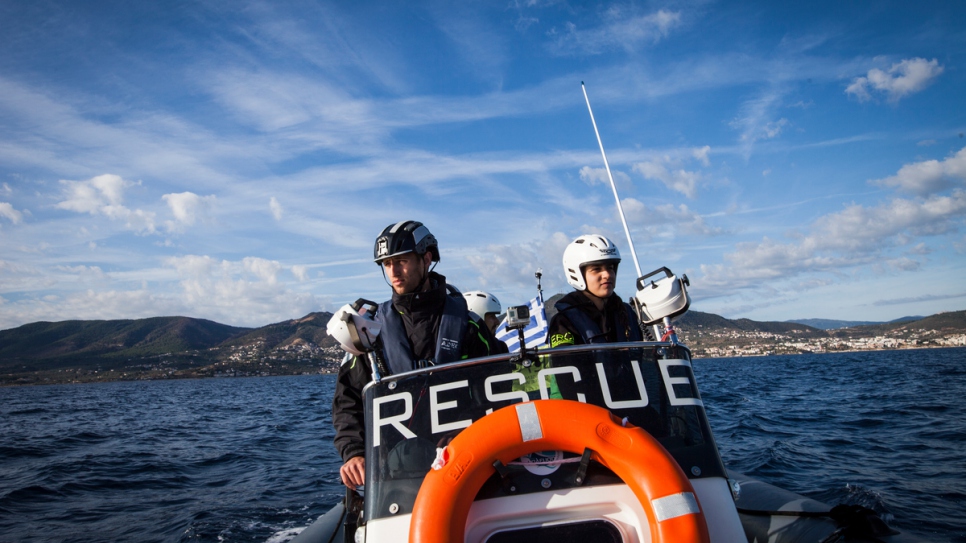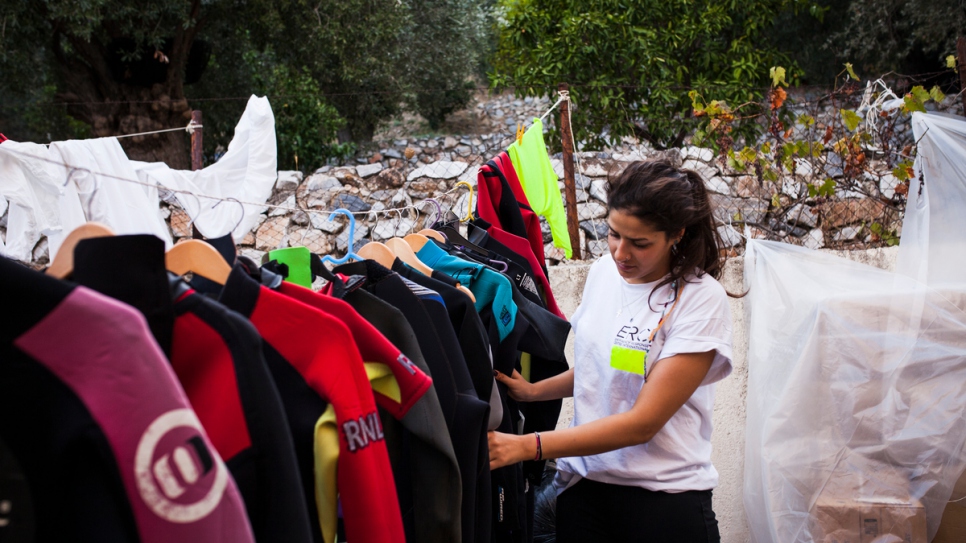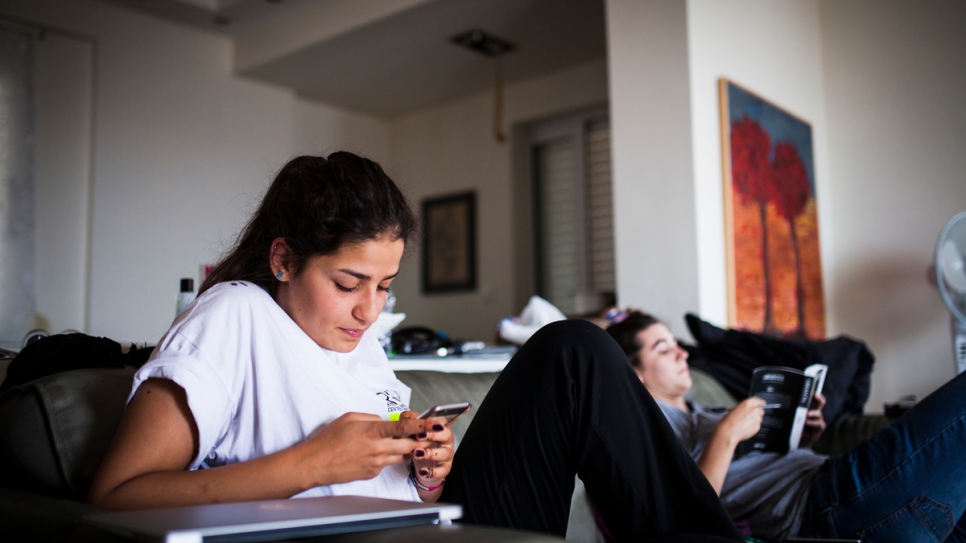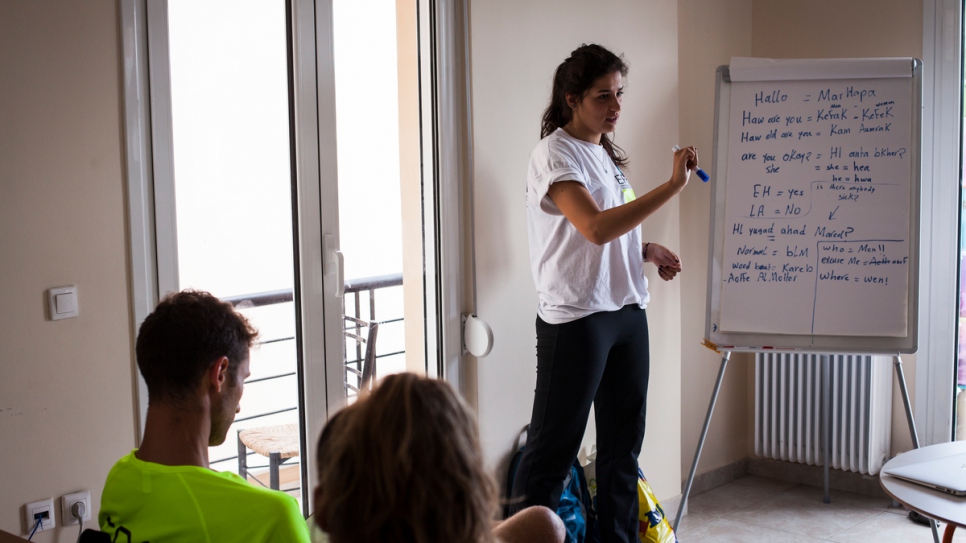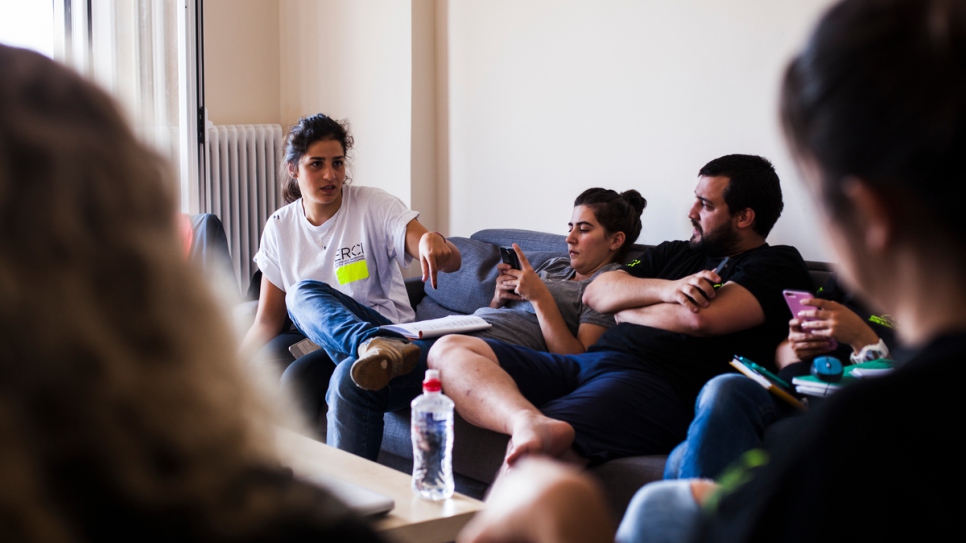Syrian refugee uses swimming skills to rescue others
Swimmers Sarah and Yusra Mardini helped save 18 fellow refugees when their boat broke down off Greece. Now Sarah volunteers as a lifeguard in the same waters.
Sarah Mardini fled the war in Syria and crossed the Aegean Sea.
© UNHCR/Achilleas Zavallis
Aboard a search-and-rescue boat in the Aegean, lifeguard Sarah Mardini scans the horizon through binoculars, searching for dinghies carrying refugees from Turkey.
In August 2015, she and her younger sister Yusra took the same hazardous route to Lesvos themselves, as refugees fleeing the war in their native Syria.
The women, who are trained elite swimmers, captivated audiences around the world, first for their rescue of their 18 fellow passengers after their flimsy boat's engine failed, and again when 18-year-old Yusra made history when she competed in Rio this year as part of the first-ever Refugee Olympic Team.
This autumn, 21-year-old Sarah returned to Lesvos as a volunteer lifeguard with Emergency Response Centre International (ERCI), a Greek, non-profit humanitarian organization that assists refugees in distress as they attempt to reach the island.
"I talk them through it. I tell them, 'I know what you feel because I've been through it.'"
She works in a team of four: rescuer, skipper, medic, and translator. Out on the water, Sarah is often the one who calms refugees, many of whom cannot swim.
"I talk them through it. I tell them, 'I know what you feel because I've been through it. I lived it, and I survived'," she says. "And they feel better because I am a refugee just like them."
This year has been the deadliest on record for refugees and migrants crossing the Mediterranean, according to UNHCR, the UN Refugee Agency. More than 5,000 lives have been lost, mostly on the Central Mediterranean route.
The death toll highlights the importance of search-and-rescue teams such as ERCI.
ERCI works with the Greek Coast Guard and the EU border agency Frontex to save the lives of people in distress once they have reached Greek waters. Greece has received more than 172,800 refugees and migrants so far this year, compared with almost 857,000 last year. A few dozen continue to reach Lesvos every week.
Sarah and Yusra grew up in Damascus, where they learned to swim before they could walk. Trained by their father, a professional swimming coach, they competed throughout Syria and the Arab world as members of top-ranked club teams, as well as the Syrian national swimming team.
As the war worsened, the family moved from house to house to try to stay safe. Their childhood home was destroyed. Last summer, the family decided to smuggle Sarah and Yusra to Turkey, then Europe, with two male relatives.
They had no fear of the crossing, Sarah says, not even the night they stood on the Turkish shore as 20 people tried to cram into an inflatable boat built for no more than eight.
"We weren't scared because we were together," Sarah says. "Any time me and my sister are together, no matter if it's hard, we find a way to make it fun. If I was alone or if she was alone, we wouldn't have made it. We made it because we were together."
Trouble struck soon after they set sail. The engine failed, leaving the boat drifting and taking in water. Sarah was determined that no one would drown. She lowered herself into the water, followed by Yusra. They pushed and trod water for three-and-a-half hours, eventually bringing everyone to safety.
"When we got to the shore, everyone was saying thank you to us," she says. But she told them: "We are swimmers, I'm a lifeguard. This is our job. It's just natural for us to do this."
She describes the night as surreal. "Even now when I say my story, I don't believe it," she says. "It doesn't feel like it happened to me. I don't feel it's real, even after one year. It feels like a movie."
"Even now when I say my story, I don't believe it."
It took them 25 days to reach Germany, on foot and by train and bus. Soon afterwards, a Berlin charity referred them to the swimming club Wasserfreunde Spandau 04, and Yusra's road to the 2016 Olympic Games began. Sarah stopped swimming competitively because an old shoulder injury had been aggravated the night they crossed the sea. They brought their parents and younger sister to Berlin a few months later through family reunification.
Sarah had planned to visit Lesvos on 18 August, the first anniversary of the date they landed. However, the pair found themselves in Rio de Janeiro, where Sarah cheered her sister on in the Olympic pool.
About the same time, Sarah received a Facebook message from Erik Gerhardsson, a Swedish volunteer with ERCI. "He was saying how we were an inspiration for them, and how our story was so amazing, and how the refugee kids on the island talk about us like we're heroes," she says.
"And right then I said, 'I'm coming,' and he said, 'What? You're just coming? Are you crazy?' and I said, 'Yes, I'm coming'."
"She is here to ensure that no more lives will get lost on this perilous journey."
She reported for her first ERCI shift a few weeks later, joining a team of 20 volunteers from all over the world.
"Sarah is a true hero," says ERCI's founder, Panos Moraitis. "After risking her own life to save 18 people on board the boat she was on while trying to reach Greece, not only did she come back to ground zero, but she is here to ensure that no more lives will get lost on this perilous journey."
Being back on Lesvos is difficult for her at times. Early mornings on the water with ERCI are a constant reminder of that terrible night.
Sarah found her first day of volunteering difficult. "I was thinking to myself, 'Why did we Syrians end up like this?’” she says. “We [ERCI] were standing by to help and I was watching them. It was so painful for me to see my people like this."
She hopes her story will help change how refugees are perceived. She has addressed the UN General Assembly in New York, as well as audiences in Germany, France, Belgium, the Czech Republic and Bulgaria.
Sarah hopes to return to university next autumn to study human rights, her field of study in Syria. Her dream is to start her own non-governmental organization. Of herself, she says: "I am just a normal person who tries to help anyone who needs it."

